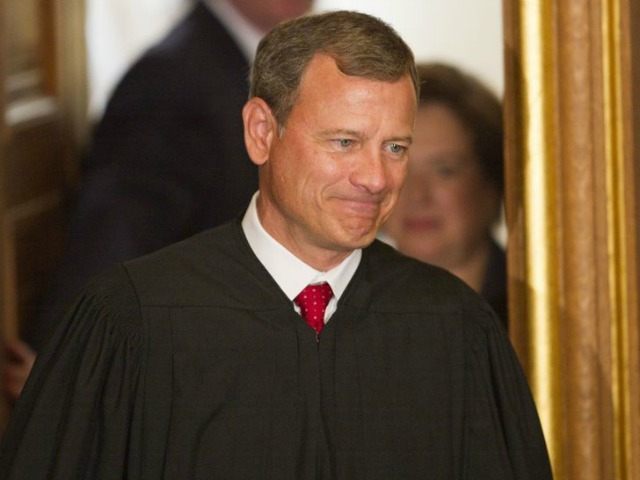
House Committee Can Ask Chief Justice to Testify on FISA Court, But Cannot Force Him
Members of the House Intelligence Committee are exploring ways to get testimony from Supreme Court Chief Justice John Roberts regarding FISA judges, but are deliberately trying to make sure they do not cross any constitutional lines in doing so.
FISA warrants are issued by the Foreign Intelligence Surveillance Court (FISC), with any appeals going to the Foreign Intelligence Surveillance Court of Review (FISCR). Unlike other courts where both sides appear and present arguments, FISC proceedings typically involve only the government, making it all the more important that lawyers representing the executive branch must be fully transparent and reliable in what they present to the judge in their case.
Judges serving on FISC and FISC are real federal judges. Under Article III of the Constitution, all federal judges are nominated by the president and confirmed by the Senate for lifetime appointments. Among Article III judges serving on federal trial courts and federal appeals courts, Chief Justice Roberts appoints several of those judges to serve for seven years on one of the FISA courts, in addition to their ongoing duties on a regular federal court.
Chairman Devin Nunes (R-CA) told Hugh Hewitt Wednesday on his radio show that that he was “grappling” with whether to ask the chief justice to appear before his committee to testify. The House Intelligence Committee wishes to better understand some of the details of the FISA courts, and considers Roberts a valuable source of information regarding process and personnel.
Nunes explained to Hewitt, “We don’t know the correct way to proceed because of the separation of powers issue.”
“I’m not aware of any time a judge has, for lack of a better term, testified before Congress,” the Republican lawmaker added.
Fortunately for Nunes and his committee, there is ample precedent for federal judges testifying before Congress. It is not uncommon for Supreme Court justices to give such testimony, including the chief justice.
But such testimony must be voluntary. The judiciary is a separate branch of government, coequal with Congress and with the president in power and in dignity. Roberts’ actual title is not the chief justice of the Supreme Court; it is instead the chief justice of the United States. Although he does not wield the same kind of unitary power that the president holds, Roberts is nonetheless the head of the third branch of government.
So issuing a subpoena to Roberts demanding testimony might well receive pushback, and a court could easily rule in favor of judicial independence by quashing the subpoena.
But a letter inviting the chief justice to appear voluntarily before the committee would be completely proper, leaving the nation’s top judge to decide how much he thinks the third branch of government can tell the first branch about how to oversee FISA activities conducted by the second branch, on matters that the third branch might eventually have to decide in a courtroom.
Ken Klukowski is senior legal editor for Breitbart News. Follow him on Twitter @kenklukowski.
via Breitbart News
Enjoy this article? Read the full version at the authors website: http://www.breitbart.com
